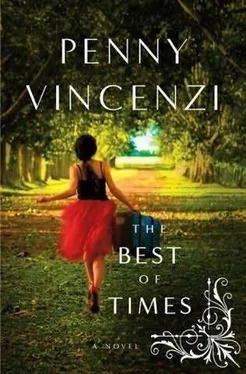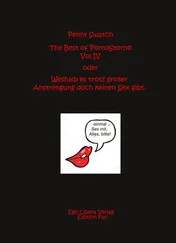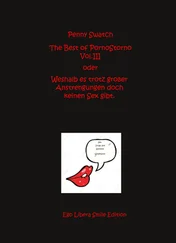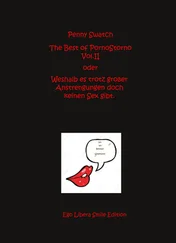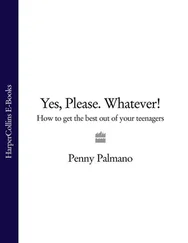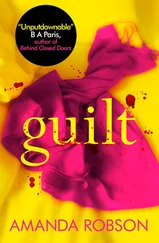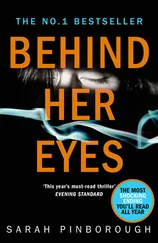Penny Vincenzi - The Best Of Times
Здесь есть возможность читать онлайн «Penny Vincenzi - The Best Of Times» весь текст электронной книги совершенно бесплатно (целиком полную версию без сокращений). В некоторых случаях можно слушать аудио, скачать через торрент в формате fb2 и присутствует краткое содержание. Жанр: Современная проза, на английском языке. Описание произведения, (предисловие) а так же отзывы посетителей доступны на портале библиотеки ЛибКат.
- Название:The Best Of Times
- Автор:
- Жанр:
- Год:неизвестен
- ISBN:нет данных
- Рейтинг книги:3 / 5. Голосов: 1
-
Избранное:Добавить в избранное
- Отзывы:
-
Ваша оценка:
- 60
- 1
- 2
- 3
- 4
- 5
The Best Of Times: краткое содержание, описание и аннотация
Предлагаем к чтению аннотацию, описание, краткое содержание или предисловие (зависит от того, что написал сам автор книги «The Best Of Times»). Если вы не нашли необходимую информацию о книге — напишите в комментариях, мы постараемся отыскать её.
The Best Of Times — читать онлайн бесплатно полную книгу (весь текст) целиком
Ниже представлен текст книги, разбитый по страницам. Система сохранения места последней прочитанной страницы, позволяет с удобством читать онлайн бесплатно книгу «The Best Of Times», без необходимости каждый раз заново искать на чём Вы остановились. Поставьте закладку, и сможете в любой момент перейти на страницу, на которой закончили чтение.
Интервал:
Закладка:
“Not really,” she said, and her eyes meeting his were what Andrews could only describe as bold. “I suppose you could say it was-had been-more than a friendship.”
“Well, we need not concern ourselves with the precise nature of it,” said Andrews, aware that the entire court longed to concern itself exactly thus. “But you are still quite sure that this conversation didn’t distract him in any way from his driving?”
“I’m quite sure.”
“Or that you might have failed to notice something untoward or dangerous yourself?”
“I’m sure about that too.”
Then: “How did you get home from the crash? Did Mr. Gilliatt drive you?”
“No, of course not. I told you. Our relationship was over. Anyway, I was helping to look after some little boys, the ones from the minibus. I went back to the hospital in the ambulance with one of them, who was having an asthma attack. Shaun, he was called; he was a great little boy. I’d had asthma as a child, so I knew how to help.”
“Well… thank you for your frankness, Miss Scott. It’s been most helpful and much appreciated. Thank you. You may step down.”
Andrews looked round the court; if this was a play he thought-and inquests so frequently provided wonderful theatre-it would be the obvious point for an interval. He called another break. He desperately wanted to get this over in one day.
He heard evidence then from the young couple whose baby had been induced prematurely by the accident; he found them mildly irritating without being sure why. And then he said he would like to hear from Toby Weston, the bridegroom who had crashed into the back of them following a blowout.
“But first we should hear your statement, Mr. Weston. Sergeant Freeman…”
Weston stood up: good-looking young chap, Andrews thought, seemed pleasant, very conventionally dressed. He’d had a tough time, almost lost his leg. And missed his wedding. Fate again: relentless, unpredictable fate…
“Er… could I say something, please?” Weston said.
“You may, Mr. Weston. As much as you like. Once you have taken the oath. First we should hear your statement. Sergeant…”
“Yes, but-”
“Sergeant Freeman, please go on.”
Freeman cleared his throat and began to read the statement; told of the desperate rush to get to the church, the buildup of delays… and how Weston had wanted to check the tyre pressures, had been concerned that one of them was soft. “‘However, Mr. Fraser, my best man, persuaded me not to, said it was unnecessary and that we should get on our way again.’”
At which point another young man stood up very suddenly in his seat and said, “But… I… That’s not…” His face was scarlet and distorted with some kind of emotion; Andrews held up his hand.
“Your turn will come,” he said. “And I will decide when. Please sit down, and be good enough not to interrupt proceedings again. I would remind you this is a court of law, and you are required to show it a proper respect. Sergeant Freeman, continue, please.”
Sergeant Freeman continued; and then Weston took the stand and the oath. Andrews watched him with interest. Another emotional revelation, perhaps?
“Now, Mr. Weston, perhaps you would like to start by telling us what you wanted to say.”
“Ah. Yes. Well, you see… well, that is, my statement wasn’t entirely correct.”
“Really?” Andrews’s voice was full of innocent disbelief.
“No. No, the thing is… that bit about the tyres, that’s not right. I… When I gave my statement to the inspector, I wasn’t at all well. I was in a lot of pain: I’d been running a temperature; I had an infection in my leg; they… well, they’d thought they might have to amputate. It had all been very traumatic; I was still very upset. And confused.”
“I’m sure. Very understandable. I believe your leg is to a large extent recovered now.”
“Yes. Yes, it is, thank you. Anyway, it was not correct to say that Barney-Mr. Fraser-had persuaded me… not to check the type pressures. It was at my insistence that we left immediately and drove on. I’d had… well, I’d had a rather… rather pressing call from my father-in-law-to-be. I just felt that we had to get to the wedding no matter what. Mr. Fraser was very anxious to check them, very unhappy at leaving them. I’m extremely sorry about the… the confusion. Really very sorry indeed.”
“Well, well,” said Andrews, “thank you for that, Mr. Weston. Of course, we have heard from Forensics that in their opinion the blowout was caused by the presence of the nail in the tyre, so I don’t think you need to worry on that score. But accuracy in statements is, of course, very important, as I’m sure you realise, and mistakes can waste time and indeed change the outcome of an enquiry in certain instances. It’s always a pity when it is lacking, and indeed deliberate inaccuracies can be regarded as an offence. Do you have any other corrections?”
“No, no others.”
“Good. Then let’s go on.”
Weston’s evidence was without further dramatic input.
Fraser, his best man, he who had clearly been so distressed earlier, was called; he appeared shocked, strained; his answers were often faltering; then suddenly he spoke of his remorse that he had escaped “literally without a scratch, while everyone around us, it seemed, was horribly hurt. To this day, I feel bad. One of the doctors at the hospital was great; she told me how common that was, helped me to come to terms with it, this survivor-guilt thing.”
“I’m glad to hear it, Mr. Fraser. May I say, this kind of remorse is very common. It doesn’t mean you should feel you bear any of the blame. And we now know,” he added, looking directly at Toby, “that you were keen to do the right thing and check your tyres. I think you will find that gradually you will lose your sense of guilt. I hope so.”
More evidence followed: from a rather sleazy-looking chap, the white van driver, whose nail-studded planks had slithered out onto the road; Andrews rather enjoyed questioning him very closely as to how this had happened. It was not for him to apportion blame; it was still possible to make plain where blame lay.
And finally, an old lady gave evidence, a very anxious old lady, who said that she felt responsible in a small way, because she’d made Mr. Weston wait while she paid for her own petrol.
“I feel absolutely awful,” she said. “I kept thinking how wrong of me it had been; he asked to go first, he said he was in a terrible hurry, and for some reason, I told him he had to take his turn. Who knows, had I not done that, those young men might not have been caught in the accident, but arrived at the church in time, and… Well, I’d like to apologise to them.” She looked across at them both rather nervously.
“I really don’t think, Mrs. Mackenzie, you should feel too bad,” said Michael Andrews gently. “It would have made so little difference to the time and-”
“Yes, yes, but that little difference might have been crucial, don’t you think? I’m sure you know the old parable about the horseshoe nail?”
“I’m… not sure,” said Andrews.
“Oh, yes…” And as he waited, clearly expectant, she went on. “Well, it goes like this. ‘For the want of a nail a horseshoe was lost; for the want of a shoe the horse was lost; for the want of a horse the rider was lost; for the want of a rider the battle was lost; for the want of a battle, the kingdom was lost. And all for the lack of a horseshoe nail. Who knows? I might have been that nail. If you follow me.”
“I… think so, yes. But I think even the rather more tangible nail would not alone have kept them from the wedding, you know. Still it’s a very interesting thought. Thank you, Mrs. Mackenzie. You may step down now.”
Читать дальшеИнтервал:
Закладка:
Похожие книги на «The Best Of Times»
Представляем Вашему вниманию похожие книги на «The Best Of Times» списком для выбора. Мы отобрали схожую по названию и смыслу литературу в надежде предоставить читателям больше вариантов отыскать новые, интересные, ещё непрочитанные произведения.
Обсуждение, отзывы о книге «The Best Of Times» и просто собственные мнения читателей. Оставьте ваши комментарии, напишите, что Вы думаете о произведении, его смысле или главных героях. Укажите что конкретно понравилось, а что нет, и почему Вы так считаете.
